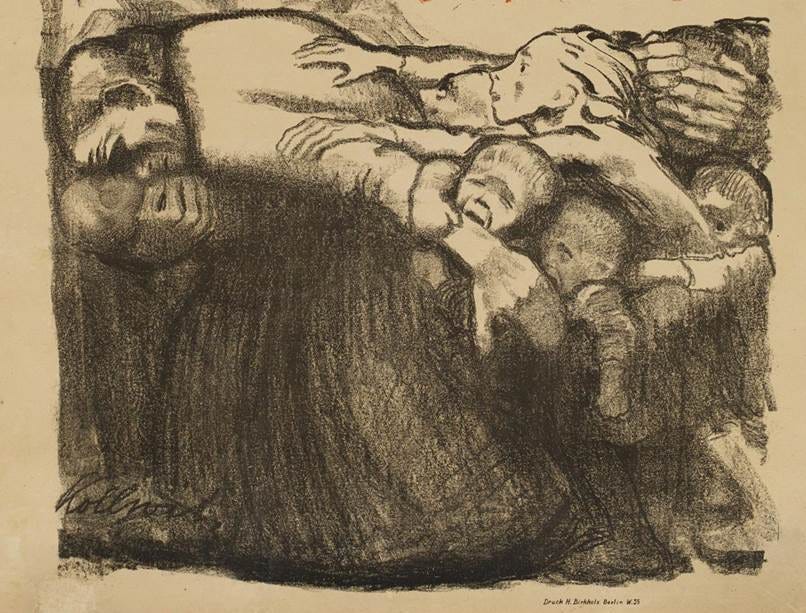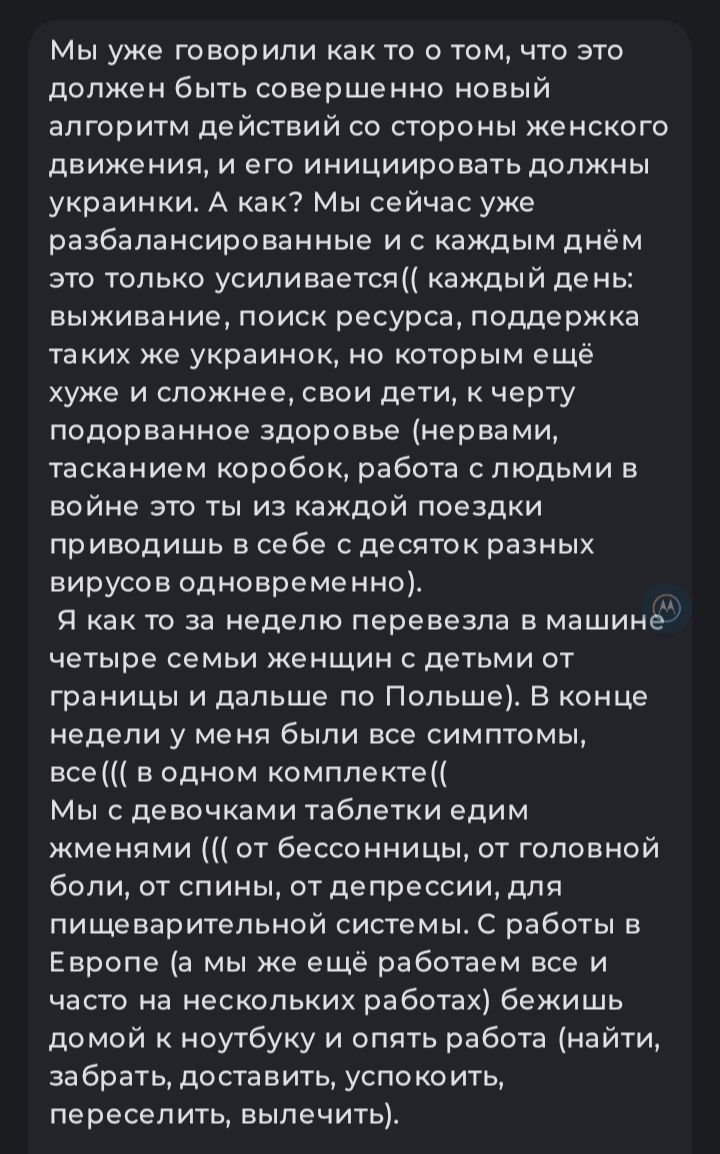A woman's war is never done
Chats with Ukrainian activists about war and who is left to make peace
I’ve been on hiatus here. There are a few posts languishing in my drafts folder, but I have grave doubts about whether any of it is relevant, or hasn’t already been said elsewhere, or will ultimately make a difference.
So today, I’m posting a translation of a recent messenger chat with a Ukrainian grassroots activist, a woman of striking wisdom and eloquence, about war, about who will get to make peace and who won’t and why, about how through all of this women are keeping themselves, their families, their community, their country alive and whole, at a terrible price to them, that no one appreciates enough even now, and few will remember afterwards. Their heroics will be an abstraction.
I’ve written about how the international community developed collective amnesia about the principles and best practices they loved to pontificate about, at the UN and in their feminist foreign policy speeches: how women need to be part of decisions about peace and security, at every level, how they should sit at the table at negotiations.
But instead of taking it from me, read 300 words by an activist at the coal face about what women’s peacebuilding actually means. I kept the casual punctuation of our late-night chat. A screenshot of the Russian original is below:
“We’ve already talked about how there must be a completely new algorithm for action by the women’s movement, and that Ukrainian women must initiate it. But how? By now, we’ve been knocked off balance, and with each day, it is getting worse (( every day: surviving, going on the hunt for resources, supporting Ukrainian women just like us but who have it even worse and harder still, our own children, our health that’s been torn to shreds (from nerves, lugging boxes, work with people stuck in war, that’s what you end up carrying with you from each trip, plus tens of different viruses all at the same time).
Somehow in the space of one week I ferried four families, women with children, in my car from the border and far into Poland). At the end of the week, I had absolutely every symptom, every single one ((( all in one package ((
The girls and I are taking pills by the fistful ((( for insomnia, headaches, backaches, depression, for our digestive system. Here in Europe, you run from work (because all of us also have day jobs and sometimes work several jobs) home to your laptop and work all over again (finding, picking up, delivering, calming down, resettling, healing).
And I’m not even complaining here), I’m just telling you about the reality in which we’re living. As a result, who’s going to those negotiations? Professional women-politicians and “professional activists anointed/appointed by those in power”. Everything is just fine in their lives. Trust me. They have not grown tired like those who work every day with the territories [under occupation], who have lived through either occupation or actual warfare in their region.
And this is the truth. We see it right in front of us.
We have this deputy governor. The first weeks of the war she and her son lived comfortably in a fancy hotel in Austria (if I’m not getting the countries mixed up), after that came the all-out theft of humanitarian aid, and this isn’t even about how she made millions and can travel to Europe for the weekend to buy sneakers, this is about how without this assistance, other women, in their own cars, went searching for humanitarian aid in Europe not by the wagon-load, but just in the trunks and seats of their small passenger cars, drove it all the way into the war zone, took risks, didn’t sleep, all the while also keeping their own families alive. You understand, with a schedule like that, who’s going to be at the negotiations? Those who are still well-rested. Well, the result will be as you would expect.”





